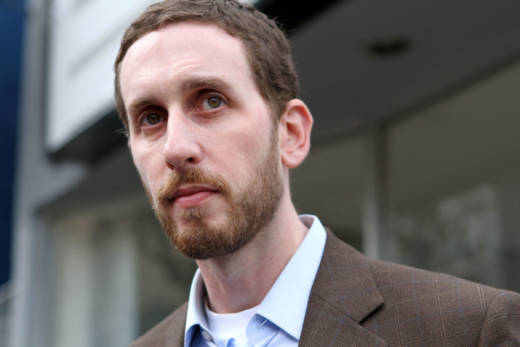“Sen. Wiener has some strong ideas about what the housing landscape would look like,” Preston said. “But he appears to be completely unconcerned with displacement and gentrification in our urban areas in California.”
Other critics have said Wiener moved too fast on a proposal that would have radically altered California’s housing landscape.
The measure was ultimately defeated in its first committee hearing, with several Democrats voting against it. But Wiener makes no apologies for coming out aggressively on housing.
“You have to be willing to challenge the status quo,” Wiener said, “and the status quo in California is badly damaging our state.”
He points to the more than 2,000 homeless San Francisco Unified school students and an estimated 15,000 unaccompanied kids who live on California’s streets.
“That really makes me mad,” he said. “It makes me mad that California has decided that views and parking are more important than children having a home to live in.”
In the race for governor, Wiener has endorsed Lt. Gov. Gavin Newsom. But he gives credit to both Newsom and former Los Angeles Mayor Antonio Villaraigosa for their plans to build 3.5 million homes if they are elected. Still, Wiener says those should be in high-density developments, not just single-family lots.
“We have to get at low-density zoning in our job centers near transit,” Wiener said. “That’s a hard conversation because for those of us who are lucky enough to live in these areas, it’s tempting to say I don’t want more people here.”
Wiener plans to try putting his bill forward again. But he knows there will always be people who oppose it.
Friend and fellow San Francisco representative, Assemblyman David Chiu (D-San Francisco), said Wiener will likely be ready for the battle.
“The Scott Wiener I know is a fighter,” Chiu said. “He’s willing to push the envelope, but also knows how to negotiate and mediate and figure out how to strike the deal when it needs to be struck.”
Wiener said he needs to act fast on his priorities. He points out he’s limited to 12 years in the Senate, and he has a lot he wants to take on.
“We really do have a poverty problem, which is driven in part by our housing crisis,” he said. “These things are all real. And if you’re not willing to break glass and sometimes shake people to say we need to do something about this, then you’re not going to get it done.”
He said there’s a lot of pressure to nibble around the edges with housing. But he said now is the time for California to fundamentally change how it approaches the issue.

